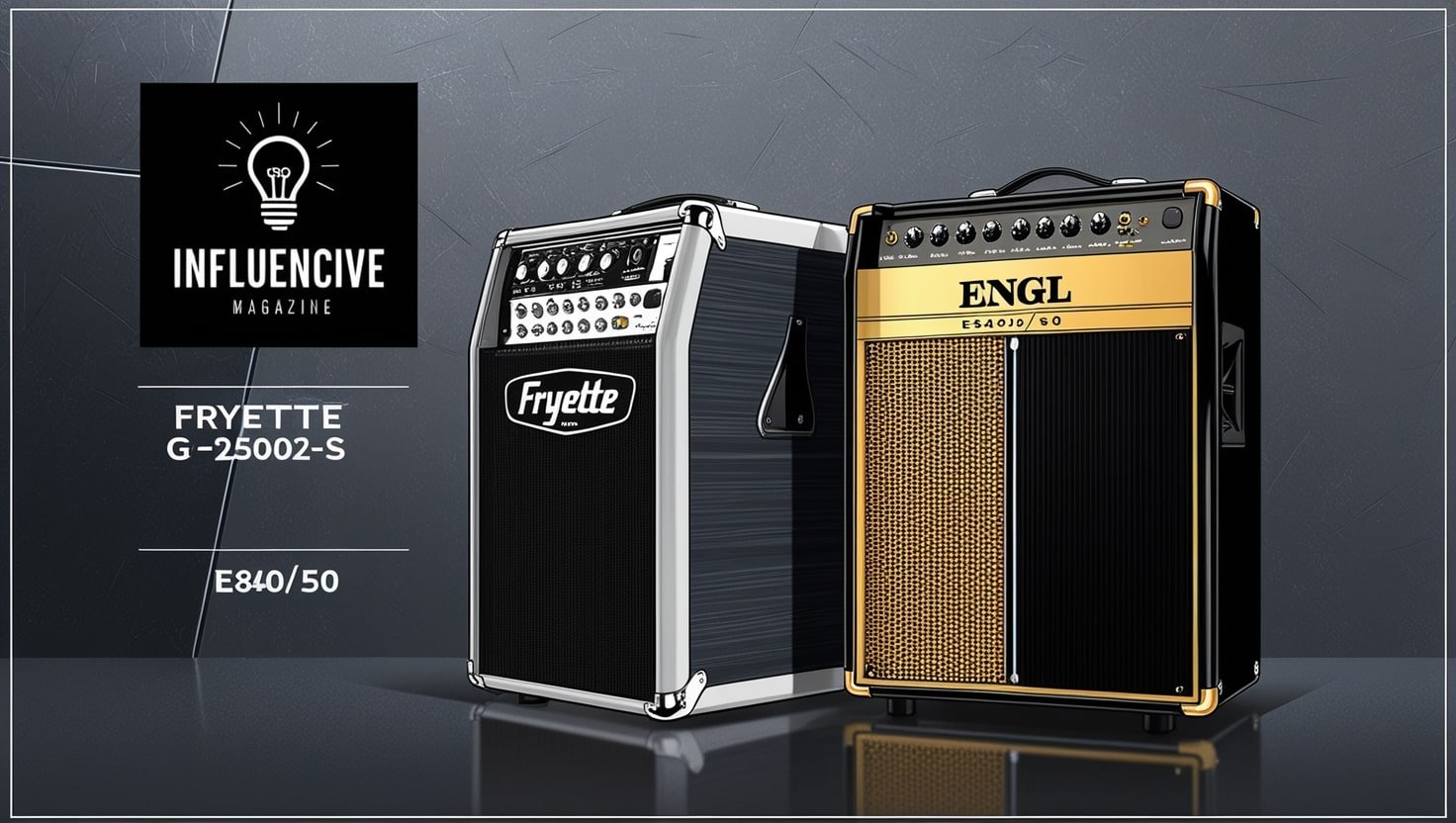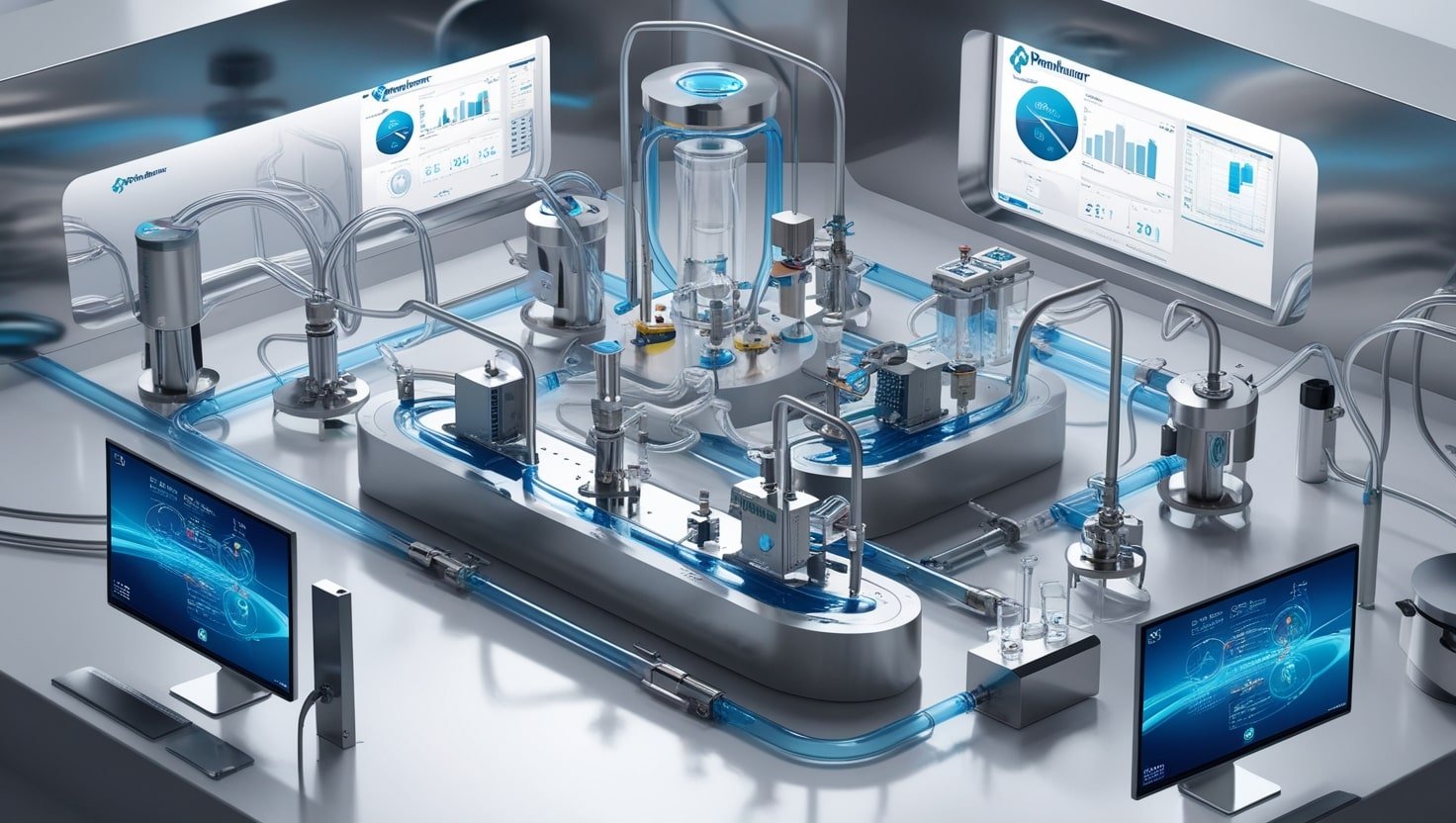When it comes to selecting a high-quality guitar amplifier, two models that often come up for discussion are the Fryette G-2502-S vs Engl E840/50. Both of these amplifiers have earned their place in the world of high-performance sound equipment, and musicians from different genres often debate which one is superior. Whether you’re a rock, metal, or jazz guitarist, understanding the unique features and performance capabilities of each model can help you make a more informed decision. In this article, we will thoroughly explore the Fryette G-2502-S vs Engl E840/50 comparison, detailing their specifications, sound quality, build, and value for money.
Overview of the Fryette G-2502-S
The Fryette G-2502-S is a well-regarded amplifier known for its ability to produce a wide range of tones. It is particularly favored by guitarists looking for versatility, clarity, and responsiveness. The Fryette brand is well-known for its innovative approach to amplifier design, and the G-2502-S is no exception. This amplifier is often celebrated for its dynamic range, providing everything from crystal-clear cleans to thick, saturated overdrive.
One of the standout features of the Fryette G-2502-S is its ability to provide high power output while maintaining clarity and detail. This makes it a great option for gigging musicians who need consistent performance at high volumes. The amp is built with quality components that ensure longevity and resilience, even in the most demanding environments.
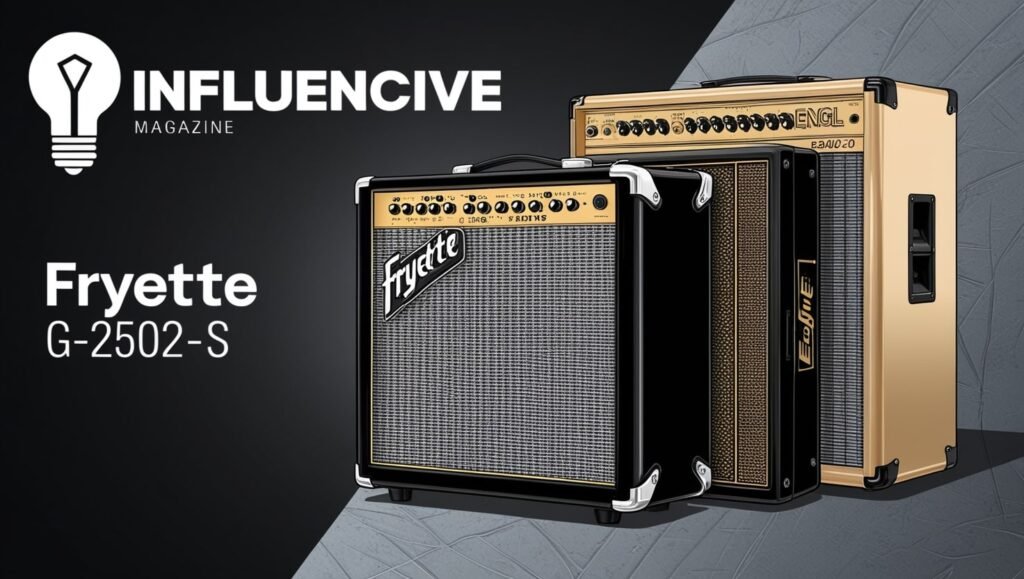
Exploring the Engl E840/50
On the other hand, the Engl E840/50 is a renowned amplifier in the world of heavy rock and metal. Known for its tight, punchy low end and aggressive tone, the Engl E840/50 is built to cut through the mix during live performances. With a focus on high-gain tones, the Engl amplifier offers a high degree of control over the distortion and saturation, making it a go-to choice for many metal guitarists.
The Engl E840/50 is equipped with features that cater specifically to those who need heavy distortion and precise tonal shaping. The design of the amplifier emphasizes high-output power and deep low frequencies, which allows guitarists to achieve the crushing sounds that are characteristic of genres like metal and hard rock.
Sound Quality: Fryette G-2502-S vs Engl E840/50
When it comes to Fryette G-2502-S vs Engl E840/50, the first thing most musicians consider is the sound quality. The two amplifiers are built for different tonal purposes, and their sound characteristics reflect that.
The Fryette G-2502-S has a much more neutral sound profile, making it incredibly versatile. This amplifier excels at providing a transparent, uncolored tone that allows your guitar’s natural sound to shine through. This quality makes it an excellent choice for genres that require precise articulation, such as jazz or blues, but it can easily handle high-gain settings for rock and metal as well.
In contrast, the Engl E840/50 is more focused on delivering a powerful and aggressive tone. Its distortion is thick and saturated, giving it a heavier feel that suits high-gain playing. Whether you’re playing power chords or shredding solos, the Engl E840/50 delivers a punchy, saturated sound that cuts through the mix and fills the room with a raw energy.
Versatility: Fryette G-2502-S vs Engl E840/50
One key difference between the Fryette G-2502-S vs Engl E840/50 is their overall versatility. The Fryette G-2502-S excels in its ability to handle a wide range of genres. Whether you’re looking for crystal-clear clean tones or heavy, saturated overdrive, this amplifier can accommodate various playing styles. This makes it a great choice for musicians who require flexibility in their sound and need to transition between different tones during a performance or recording session.
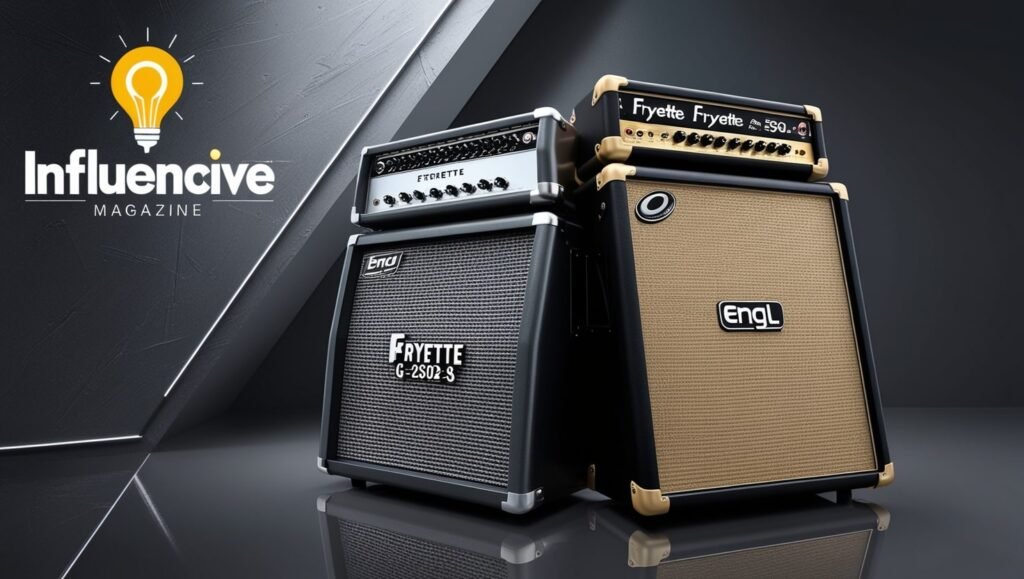
The Engl E840/50, however, is more specialized in its tonal capabilities. While it can certainly produce clean sounds, its primary strength lies in its high-gain distortion. If you’re looking for a highly focused, aggressive tone that works well for metal, hard rock, or other high-gain genres, the Engl E840/50 is the better choice. It’s less versatile in terms of clean tone options, but its high-gain sounds are some of the best in its class.
Build Quality: Fryette G-2502-S vs Engl E840/50
Both the Fryette G-2502-S and the Engl E840/50 are built with durability in mind. These amplifiers are designed to withstand the rigors of frequent gigging and touring. The Fryette G-2502-S boasts a rugged construction with premium materials, ensuring that it can endure even in the most demanding environments. Its attention to detail in the build quality extends to its power and speaker components, making it a reliable choice for musicians who need an amplifier that can deliver day in and day out.
The Engl E840/50, too, is known for its solid build. The German craftsmanship that goes into every Engl amplifier is apparent in the E840/50’s sturdy construction. The amp is built to last and can handle heavy use without compromising on sound quality. Its heavy-duty metal chassis and high-quality components contribute to its longevity and reliability, especially in high-energy performances.
Price Comparison: Fryette G-2502-S vs Engl E840/50
The Fryette G-2502-S is typically priced in a mid-to-high range, reflecting its premium features and versatility. For guitarists who are looking for an all-around amp that can handle various genres and playing styles, the G-2502-S provides excellent value for money. While it is a bit more expensive than entry-level amplifiers, it’s still considered affordable for musicians who are looking for high-end features without breaking the bank.
The Engl E840/50, on the other hand, is usually positioned in a higher price bracket. The reason for the higher price is largely due to its specialization in high-gain tones and its powerful output capabilities. Guitarists who primarily play metal or hard rock and require a tone that can handle intense distortion may find the extra investment in the Engl E840/50 worth it. While it is certainly more expensive than the Fryette, it’s also a highly respected amplifier among professionals in the metal community.
Tone Shaping and Features: Fryette G-2502-S vs Engl E840/50
Both amplifiers offer plenty of tone-shaping features, but the Fryette G-2502-S offers more versatility when it comes to tonal adjustments. It includes a range of EQ controls that allow you to fine-tune your sound across different frequencies. Additionally, the G-2502-S features multiple channels, which enable you to seamlessly switch between clean, crunch, and overdrive tones.
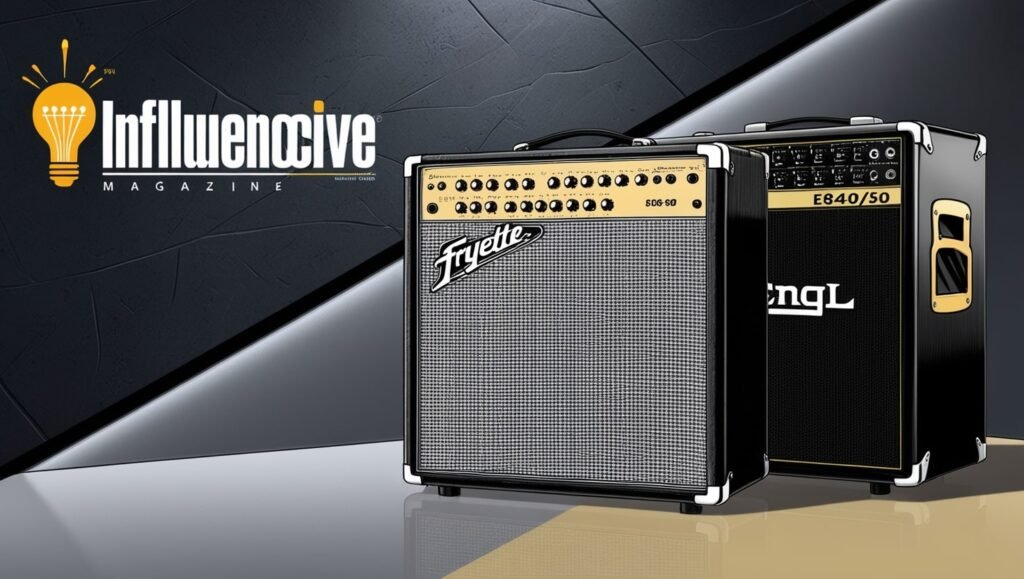
The Engl E840/50, on the other hand, focuses on providing more extreme tonal options with its high-gain settings. While it also offers EQ controls, they tend to be more focused on enhancing distortion and shaping midrange and low-end frequencies for the best heavy sound possible. For guitarists who favor precision and flexibility in their tonal settings, the Fryette G-2502-S will likely be more appealing. However, if you’re after a powerful and consistent high-gain tone, the Engl E840/50 excels in that department.
Conclusion
Ultimately, the decision between the Fryette G-2502-S vs Engl E840/50 comes down to your personal playing style and the type of music you perform. The Fryette G-2502-S is a more versatile amplifier, offering a broad range of tonal possibilities and an incredibly responsive sound. It’s ideal for musicians who need flexibility across multiple genres and require an amp that can handle everything from clean tones to heavy distortion.
On the other hand, the Engl E840/50 shines in its specialization. If you’re a metal guitarist or someone who frequently uses high-gain tones, the Engl E840/50 is a powerful option that delivers exactly what you need. Its aggressive tone and punchy distortion make it a standout in the high-gain category.

